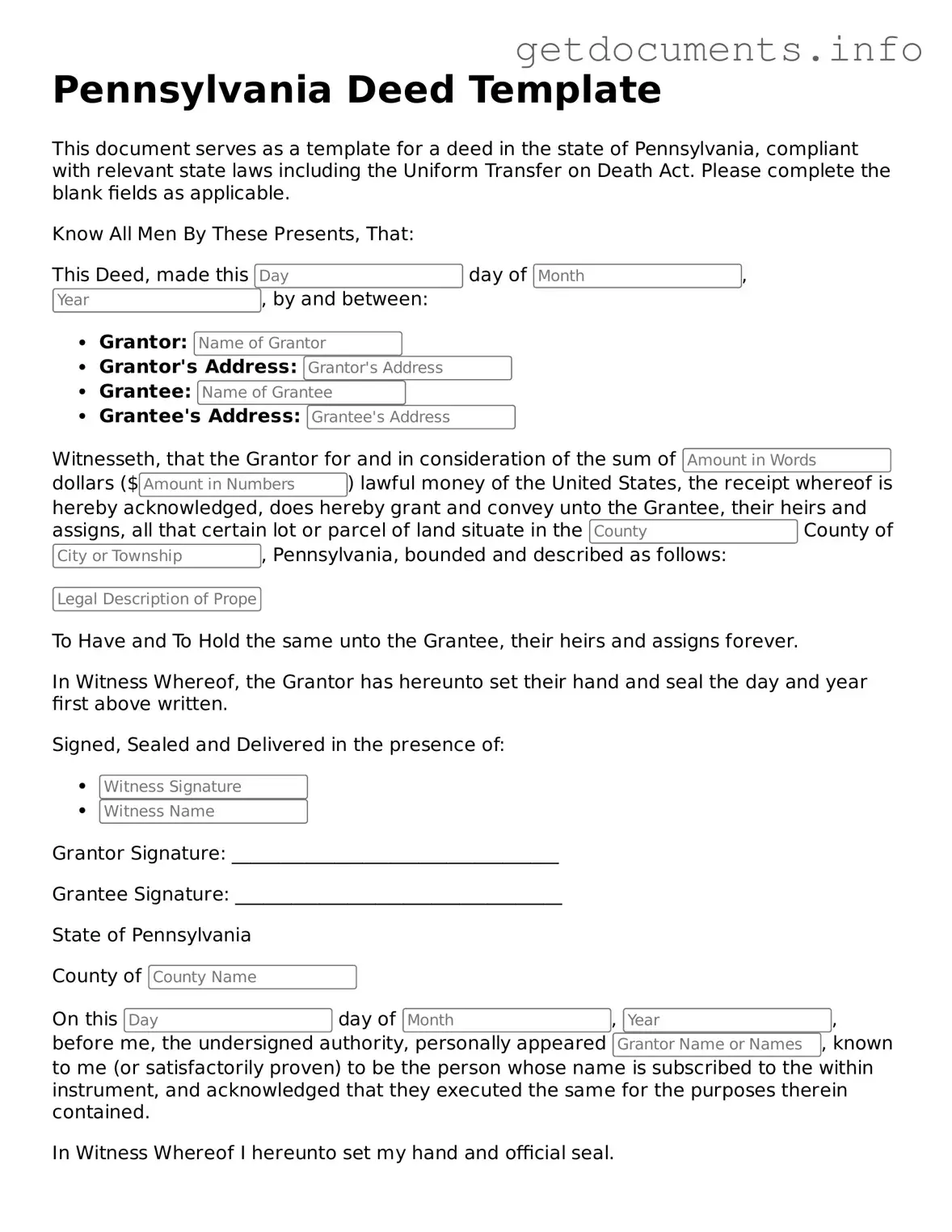Free Deed Template for Pennsylvania
A Pennsylvania Deed form is a legal document used to transfer ownership of real estate from one party to another. This form outlines the details of the property being transferred and the parties involved in the transaction. Understanding the importance of this document is crucial for ensuring a smooth transfer process.
If you are ready to fill out the Pennsylvania Deed form, please click the button below.
Access Deed Editor

Free Deed Template for Pennsylvania
Access Deed Editor
Got places to be? Complete the form fast
Fill out Deed online and avoid printing or scanning.
Access Deed Editor
or
⇩ PDF File
